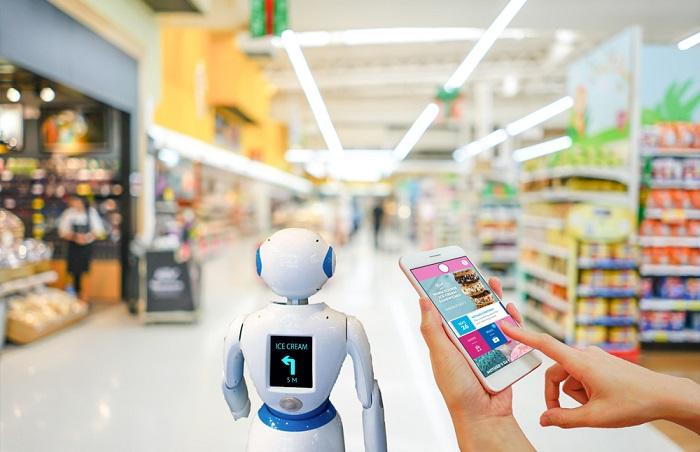The contemporary Artificial Intelligence in Retail industry is not just a sub-sector of technology; it is a transformative force that is fundamentally remodeling the principles of commerce. The industry's impressive trajectory, with projections to reach a market valuation of $76.96 billion by 2035, speaks to its foundational importance. Growing at a formidable compound annual rate of 22.67%, this industry is a complex ecosystem composed of AI platform developers, cloud service providers, data analytics firms, and specialized software vendors, all focused on a single goal: making retail smarter, more efficient, and more customer-centric. Unlike past technology waves, the AI in retail industry is defined by its deep, symbiotic integration with its host sector, acting as an intelligence layer that optimizes every function.
At its core, the industry thrives on a virtuous cycle of data and innovation. Retailers generate vast quantities of data from online clicks, in-store purchases, and supply chain movements. The AI industry provides the tools and algorithms to process this data and extract actionable insights. These insights, in turn, help retailers improve their operations and customer experiences, which generates even more data, fueling further AI model refinement. This self-reinforcing loop is the engine behind the industry's rapid advancement. It allows for continuous improvement in areas like demand forecasting, where models become more accurate with each sales cycle, and personalization, where recommendations become more relevant with every customer interaction, driving relentless progress.
The competitive landscape of the AI in retail industry is a dynamic mix of established technology titans and agile, specialized startups. Giants like Amazon, Google, and Microsoft leverage their vast cloud infrastructure and extensive R&D capabilities to offer powerful, scalable AI platforms. They set the pace for much of the industry's innovation. At the same time, the industry is fertile ground for startups that can identify and solve very specific retail challenges with unparalleled expertise. For instance, a startup might focus exclusively on using computer vision to reduce shrink in grocery stores or using NLP to analyze fashion trends from social media. This vibrant competition ensures that retailers have a wide array of options, from comprehensive platforms to best-of-breed point solutions.
Looking forward, the industry's development will be heavily influenced by crucial considerations around ethics and trust. As AI makes more autonomous decisions about pricing, promotions, and even customer service, issues of algorithmic bias and transparency become paramount. The industry is therefore seeing a growing focus on developing "Explainable AI" (XAI) and "Responsible AI" frameworks to ensure that automated decisions are fair, transparent, and auditable. Building and maintaining consumer trust will be a critical success factor as the industry scales. The journey to a nearly $77 billion valuation is therefore not just about technological prowess, but also about building a sustainable and ethical foundation for the future of intelligent commerce.
Explore More Like This in Our Regional Reports:



